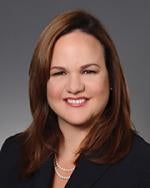The Internal Revenue Service (IRS) ruled that a taxable real estate investment trust (REIT) subsidiary would not be considered to be operating or managing certain senior living and healthcare facilities located outside the United States. The ruling demonstrates that with appropriate tax planning a REIT can indeed obtain a majority stake through a taxable REIT subsidiary of foreign hospitals, healthcare facilities and senior living facilities.
IN DEPTH
Background
The relevant facts described in private letter ruling 202029002 released on July 17, 2020 (dated January 28, 2020) (PLR 202029002), are:
-
A taxable REIT subsidiary (TRS) of a REIT agreed to acquire an interest in a US domestic investment fund (the “Fund”), which held interests in various health care facilities (“Facilities”) through foreign limited partnerships (“Sub LPs”). Such acquisition by TRS would amount to an indirect majority interest in each Sub LP. TRS had no employees.
-
A foreign corporation serves as the general partner (GP) to the Fund, and a corporate subsidiary of GP owns a nominal interest in each Sub LP and serves as the general partner of each Sub LP. TRS also agreed to acquire an interest in GP.
-
A foreign corporation, an affiliate of a minority partner in Fund (“Operator”), operates each Facility pursuant to an arm’s-length management agreement with the respective Sub LP owner (the “Agreements”).
-
Pursuant to the Agreements, Operator has the exclusive right to manage the day-to-day operation of the Facilities, including, but not limited to, directing and supervising employees at the Facilities, collecting revenues and paying expenses and recruiting, hiring and terminating employees.
TRS will not be involved in any facet of the day-to-day operations at the Facilities and will not maintain any employees who perform any services relating to the Facilities. Each respective Sub LP employs the employees at its respective Facility, and Operator will employ employees to supervise the Sub LP employees.
Analysis
Generally, qualifying income of a REIT includes real estate rental income, but does not include income derived by a REIT, directly or indirectly, from real or personal property for managing or operating such property. The Internal Revenue Code generally provides that services or management rendered through an independent contractor (as defined in IRC § 856(d)(3)) from which the REIT (or its TRS) does not derive income is not treated as being provided or rendered by the REIT.
A TRS cannot operate or manage a “qualified health care property” (as defined by IRC § 856(e)(6)(D)(i)). A TRS is not considered to be operating or managing a qualified healthcare property solely because it employs individuals working at such property located outside the United States, but only if an eligible independent contractor is responsible for the daily supervision and direction of such individuals on behalf of the TRS pursuant to a management or similar services agreement.
Conclusion and Observations
The Service concluded that TRS is not directly or indirectly operating or managing a healthcare facility by virtue of its indirect majority interest in the Sub LPs through the Fund. The Service relied on the fact that Operator, and not TRS, directs day-to-day management and otherwise has exclusive authority to supervise and direct the employees of each Sub LP in connection with the operation of each Facility. In addition, the Service noted the “prohibition on a TRS operating a health care facility is not meant to prevent the TRS from bearing the expenses of operating a health care facility.” Moreover, the Service highlighted the employees are employed by each Sub LP, rather than by TRS and thus, they are not required to be supervised by an “eligible independent contractor” as the term is defined in IRC § 856(d)(9) (generally, a contractor that has third-party customers).
The PLR serves as useful guidance for structuring healthcare and hospitality transactions through REITs, particularly those that have cross-border dimensions. It also illustrates that only an independent contractor (as opposed to an eligible independent contractor) is required for operating a healthcare facility (or lodging facility as the case may be) without jeopardizing the status of the REIT or TRS, provided that such contractor manages and operates such facility. Contrast that with the need for eligible independent contractors, which are required in structures where a TRS leases qualified property from its parent REIT (frequently called “RIDEA structures” for the REIT Investment Diversification and Empowerment Act) or where the TRS itself employs individuals working at a property located outside of the United States.






 />i
/>i
